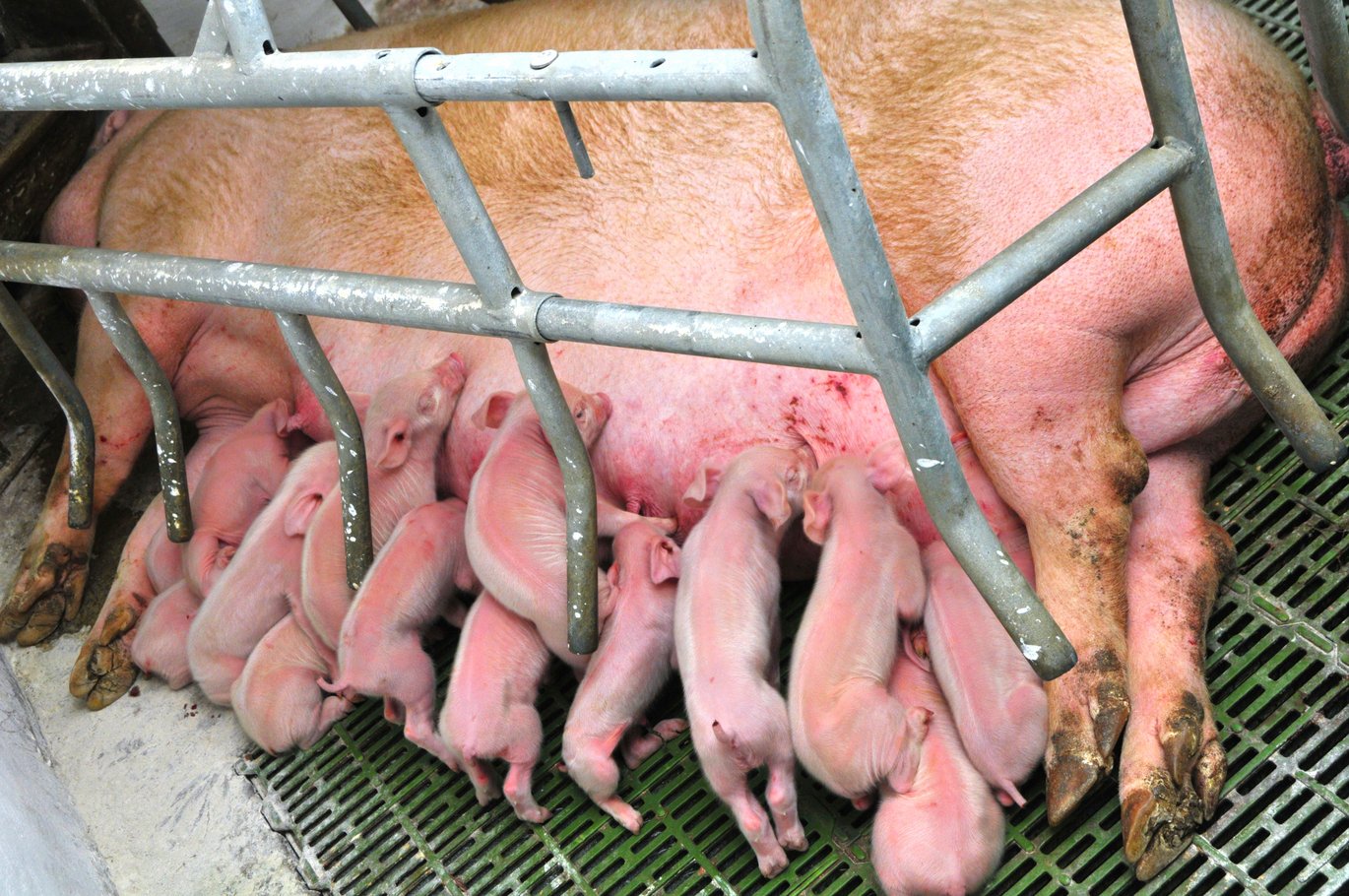Mindre protein i foderet skal forbedre søernes faring og grisenes overlevelse
Nyt projekt vil sætte ind over for den høje dødelighed af pattegrise i Danmark med en mere optimal mængde protein i foderet til soen. Projektet er finansieret af Svineafgiftsfonden.

Piglet mortality is too high in Denmark. Most piglet death happens during farrowing or shortly after. The new project ‘Far-Vel Protein’ [Farrow well Protein] will help provide new knowledge on the sows’ need for protein and free amino acids in their last part of gestation. This will contribute to optimise the sows’ farrowing process, colostrum yield, milk production and feed utilisation.
“We know that the sow’s farrowing process and colostrum production are the most important traits in order to reduce piglet mortality. A correct sow nutrition can thus help ensuring that the sows finish the farrowing quickly and efficiently. Furthermore, it will increase the sow’s colostrum yield, the pigs’ colostrum and milk intake and piglet survival”, says professor and project leader Peter K. Theil.
The project will be conducted in the experimental barns at Department of Animal Science, Aarhus University, Foulum. The project includes 48 sows which will be fed six different feed mixtures during their last part of gestation.
Danish sows receive too much protein
One of the hypotheses in the project is that Danish sows receive too much protein during gestation. “When reducing the protein concentration – compared to lactation feed – the sows will likely be able to produce colostrum and farrow more quickly. And both aspects are necessary to increase the total piglet survival”, explains Peter K. Theil.
“Another hypothesis is that feeding late in gestation changes the sows’ so-called ‘set-point for milk production’, meaning that the sows’ potential of obtaining a high milk yield is based in the last part of their gestation during which the udder quickly develops. An optimal udder development is thus expected to be determined by optimal feed supply and feed composition”, clarifies Peter K. Theil.
In the project, sows will be fed decreasing amounts of protein and increasing amounts of free amino acids during their last part of gestation. The project is split into the following three work packages:
- Work package 1 (to be conducted in 2022): Dose-response experiment with a low content of crude protein and increasing amounts of free amino acids in the feed in the last WEEK of gestation.
- Work package 2 (to be conducted in 2023): Dose-response experiment with a low content of crude protein and increasing amounts of free amino acids in the feed in the last MONTH of gestation prior to sows enter the farrowing unit.
- Work package 3 (to be conducted in 2024): The importance of the course of delivery and colostrum intake for piglets’ chances of survival.
Besides increasing piglet survival and contribution to higher milk yield in Danish sows, the project will also improve the feed utilisation and reduce the environmental impact and carbon footprint by lower emissions of nitrogen and CO2, respectively. “Furthermore, a benefit of the project is that if our results confirm the sows’ lower need for protein, soy will no longer be a necessary raw material in gestation feed, thus in the future it would be based on Danish feed ingredients only”, says Peter K. Theil.
Links to other projects on sow feeding
The project ‘Far-vel Protein’ relates to the SEGES project ‘MaxDrægtigMedMindreSo’ [MaxPregnantWithSmallerSow] which is funded by the Danish Pig Levy Foundation. The SEGES project specifically focuses on the protein content of the feed and daily feed strength in the sows’ mid-gestation. Another project at Aarhus University is the project ‘Nøjsom’ [Thrifty] in which physiological measures are made, and these are coordinated with ‘Far-vel Protein’ and the SEGES project.
“Knowledge from the SEGES project, the ‘Nøjsom’ project and the current project, all focussing on gestation, will presumably form the basis of import of new standards for nutrients for pregnant sows”, concludes Peter K. Theil.
Further information | |
We do our best to make sure that all our articles live up to Universities Denmark’s principles of good research communication. Therefore, the article is supplied with the following information: | |
Funding | The project is funded by the Danish Pig Levy Foundation. |
Partners | SEGES Co-supervisor for PhD student Jakob C. Johannsen. Furthermore, they contribute to strengthen the discussions of design and feed formulations and to coordinate with SEGES’ activities within the area. |
Read more | Link for the project website (in Danish only). |
Contact | Professor Peter Kappel Theil, Department of Animal Science, Aarhus University. E-mail: Peter.Theil@anis.au.dk |
